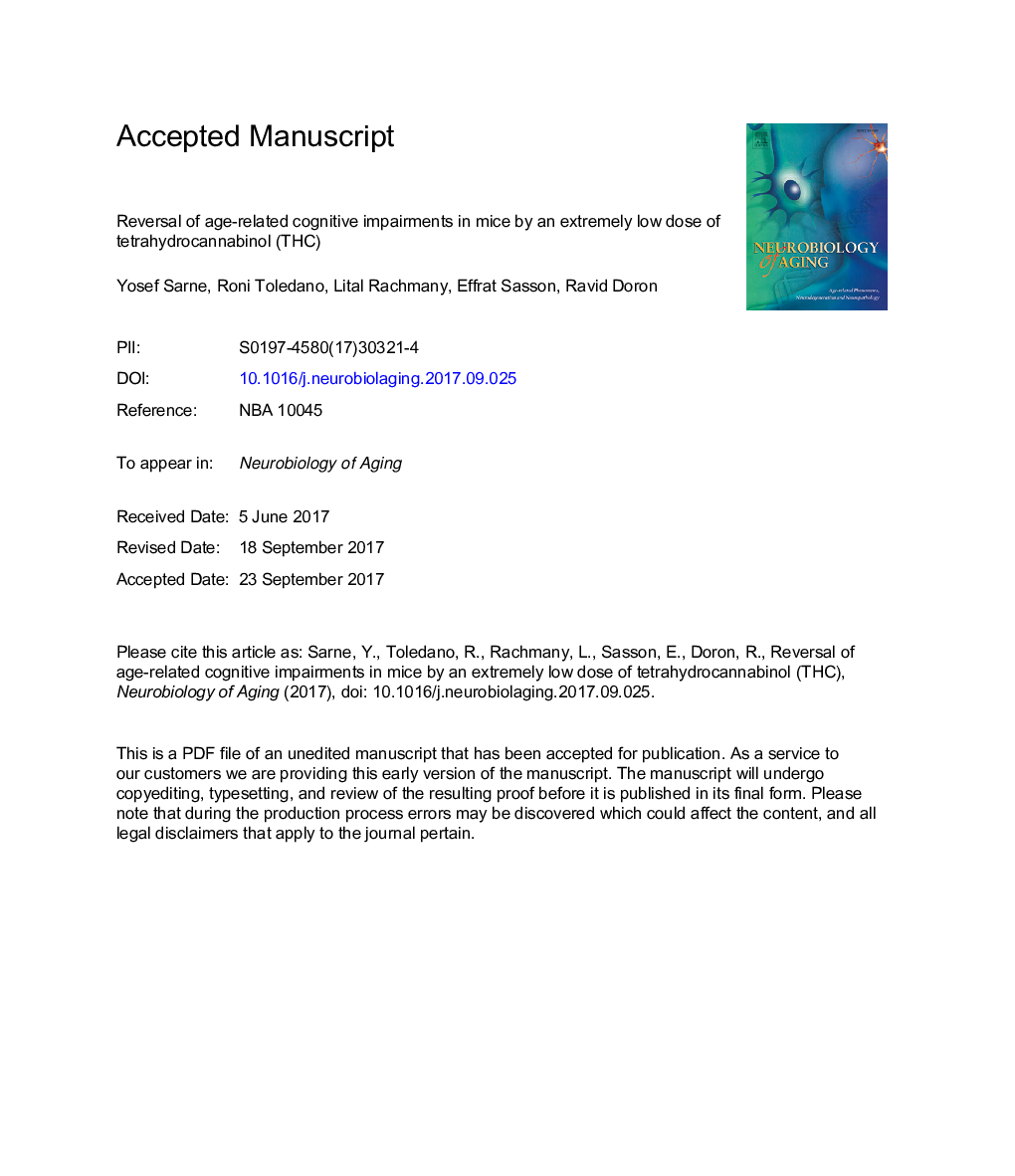| کد مقاله | کد نشریه | سال انتشار | مقاله انگلیسی | نسخه تمام متن |
|---|---|---|---|---|
| 6803201 | 1433523 | 2018 | 26 صفحه PDF | دانلود رایگان |
عنوان انگلیسی مقاله ISI
Reversal of age-related cognitive impairments in mice by an extremely low dose of tetrahydrocannabinol
ترجمه فارسی عنوان
معکوس کردن اختلالات شناختی مرتبط با سن در موشها با یک دوز بسیار پایین تتراهیدروکانیابینول
دانلود مقاله + سفارش ترجمه
دانلود مقاله ISI انگلیسی
رایگان برای ایرانیان
کلمات کلیدی
موضوعات مرتبط
علوم زیستی و بیوفناوری
بیوشیمی، ژنتیک و زیست شناسی مولکولی
سالمندی
چکیده انگلیسی
This study was designed to test our hypothesis that an ultra-low dose of delta-9 tetrahydrocannabinol (THC) reverses age-dependent cognitive impairments in old mice and to examine the possible biological mechanisms that underlie this behavioral effect. Old female mice aged 24 months that had been injected once with 0.002 mg/kg THC (3-4 orders of magnitudes lower than doses that induce the conventional cannabinoid effects in mice) performed significantly better than vehicle-treated old mice and performed similarly to naive young mice aged 2 months, in 6 different behavioral assays that measured various aspects of memory and learning. The beneficial effect of THC lasted for at least 7 weeks. The single injection of THC increased the level of Sirtuin1, an enzyme that has been previously shown to be involved in neuroprotection and neuroplasticity, in the hippocampus and in the frontal cortex of old mice, for at least 7 weeks. Magnetic resonance imaging demonstrated a larger volume and higher tissue density in various regions of the brain of THC-treated old mice. These findings suggest that extremely low doses of THC that are devoid of any psychotropic effect and do not induce desensitization may provide a safe and effective treatment for cognitive decline in aging humans.
ناشر
Database: Elsevier - ScienceDirect (ساینس دایرکت)
Journal: Neurobiology of Aging - Volume 61, January 2018, Pages 177-186
Journal: Neurobiology of Aging - Volume 61, January 2018, Pages 177-186
نویسندگان
Yosef Sarne, Roni Toledano, Lital Rachmany, Effrat Sasson, Ravid Doron,
